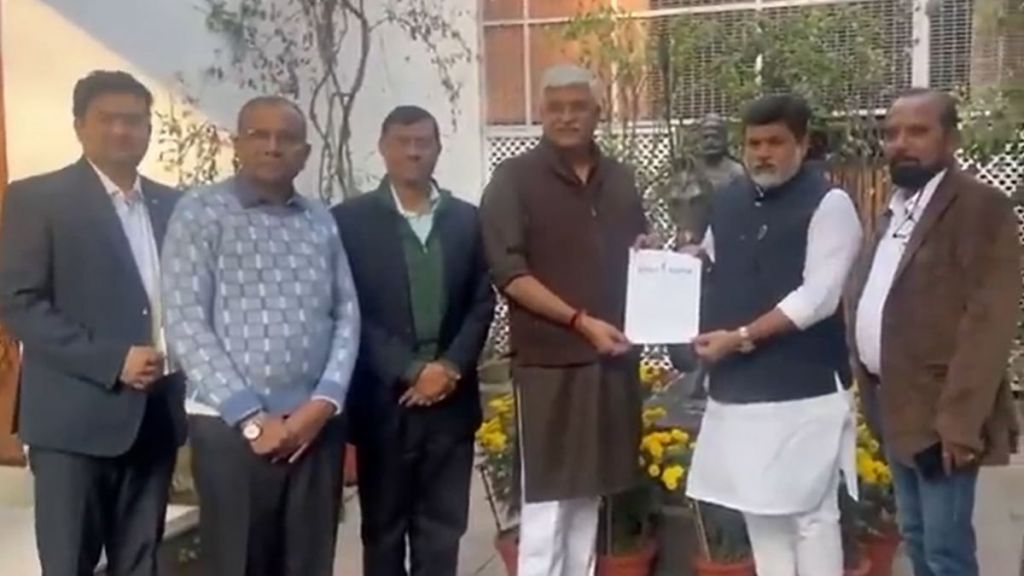
Mumbai: The Centre has issued an official notification conferring the status of classical language on Marathi. State Minister of Marathi Language Uday Samant and Union Minister of Culture Gajendra Singh Shekhawat met in New Delhi on Wednesday for the official announcement.
The Union Cabinet had approved classical language status for Marathi on October 3, 2024, along with Assamese, Bengali, Pali and Prakrit. During their meeting, Shekhawat handed over the official Government Resolution (GR) to Samant.
Samant described the recognition as a “dream come true” for the people of Maharashtra and thanked Prime Minister Narendra Modi and Shekhawat for their support.
He also announced that the state government would soon submit a proposal detailing the benefits Marathi will receive as a classical language. The recognition acknowledges Marathi’s rich cultural heritage, historical significance and contribution to Indian literature and arts.
Samant announced that Shekhawat would visit Pune on January 31, February 1 and 2 to inaugurate the Marathi World Conference. He emphasised the state’s commitment to preserving and promoting the Marathi language on an international platform and extended his thanks to all the writers and scholars whose efforts made the recognition possible.
Once recognised as classical, the language receives benefits such as the establishment of a centre of excellence and dedicated academic positions at central universities to support advanced research and studies. Granting a language the status of a classical language is akin to official recognition of its richness and heritage.
To further enhance the language, the central government provides an annual grant of Rs 250 crore to Rs 300 crore. This funding can be utilised for building language research centres, promoting books and literature in the language, establishing libraries, and expanding the reach of the language through universities and other institutions.
Arrangements will be made to facilitate the study of Marathi in universities throughout India. Ancient texts will also be translated to make them accessible to a wider audience. Additionally, the recognition as a classical language ensures that two national awards are presented every year to eminent scholars in the language.
Criteria
A language is granted classical status when it meets certain criteria. It must have ancient texts or records dating back 1,500 to 2,000 years
A rich collection of literature or historical works valued across generations
A distinct literary tradition that is not derived from other languages
Additionally, its ancient form should differ significantly from its modern version, demonstrating a clear break in its evolution
Benefits
Establishment of a centre of excellence
Dedicated academic positions at central universities to support research and studies
Annual central grant of Rs250 crore to Rs300 crore. This funding can be utilised for building language research centres, promoting books and literature in the language, establishing libraries, and expanding the reach of the language through universities and other institutions
Arrangements to facilitate the study of the language in universities throughout India Translations of ancient texts to make them accessible to a wider audience
Two national awards every year to eminent scholars in the language